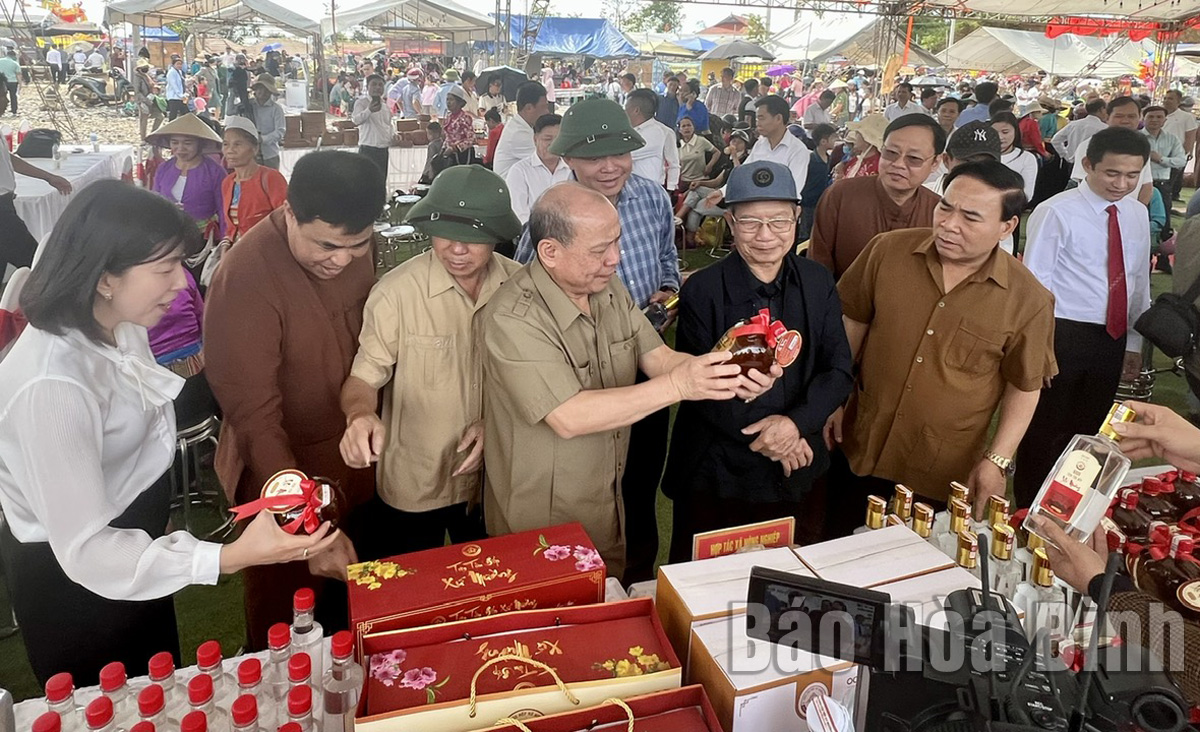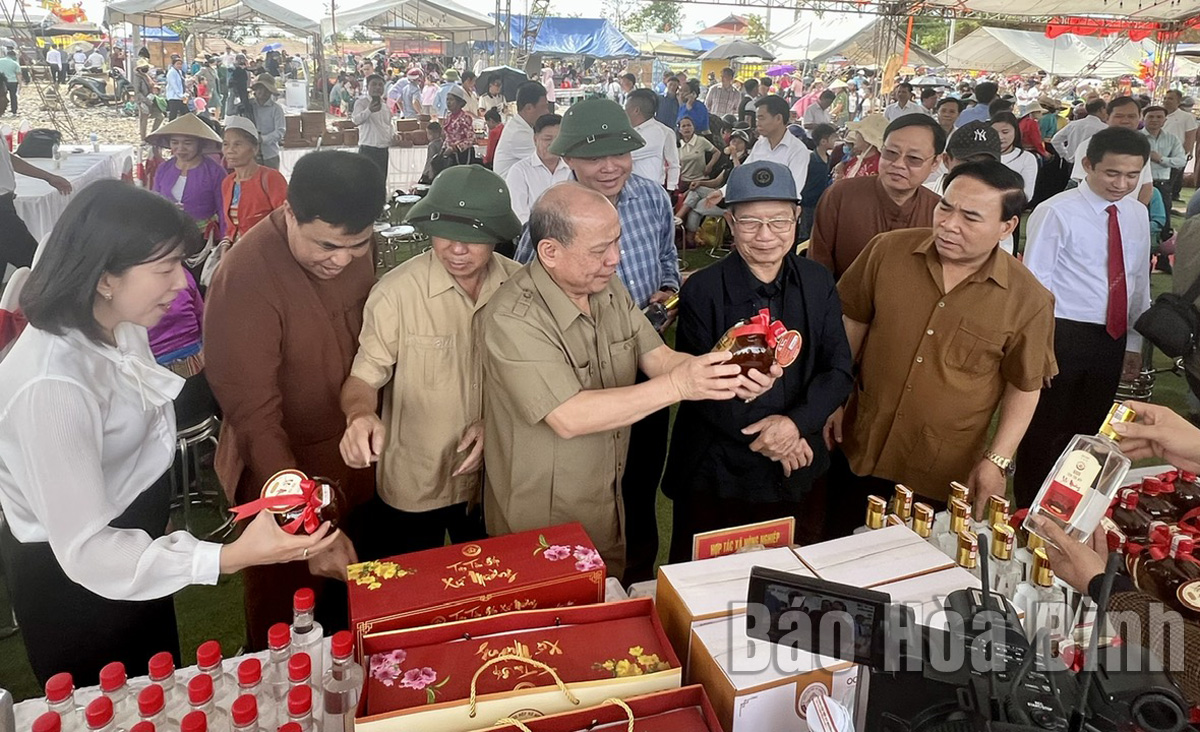
The People’s Committee of Lac Son district held a market in the resettlement zone of Dom Bai hamlet, Mien Doi commune, on October 26 - 27 to exhibit, introduce, and promote the sale of "One Commune, One Product” (OCOP) and typical products of Lac Son district. The event also offered visitors a chance to enjoy natural scenic landscapes.
Provincial leaders and Hoang Van Hon, former member of the Party Central Committee and former Secretary of the provincial Party Committee, visit booths displaying OCOP products of Lac Son district.
The opening ceremony was attended by Hoang Van Hon, former
member of the Party Central Committee and former Secretary of the provincial
Party Committee; Bui Duc Hinh, Standing Vice Secretary of the provincial Party
Committee and Chairman of the provincial People’s Council; other leaders of the
provincial People’s Council, departments, sectors, and localities; along with a
large number of local residents and tourists.
The market aimed to increase introducing
products and connect organisations of the collective economy with other
economic sectors to create an opportunity for cooperatives to access consumers
and seek partners. It was expected to help step up the marketing and trading of
OCOP products as well as typical farm produce and goods of Lac Son district.
Featuring diverse activities, the market became
a platform for linking supply and demand and introducing products, helping to
promote product value, people’s income, and local socio-economic development.
All the items displayed by cooperatives and production - business households
met quality, design, food safety, and origin standards.
Organised amidst the scenic landscape of
ripening terraced rice fields in Mien Doi commune, the event attracted numerous
local residents and visitors who came here to not only shop but also admire the
natural beauty and learn about the traditional culture of the Muong ethnic
group via the new rice celebration ritual and Muong gong performances. They
also had a chance to try cultural and sports activities deeply imbued with the
cultures of ethnic groups in the Muong Vang zone, and experience
community-based tourism.
On this occasion, the Hoa Binh Rubbers Club in
Hoa Binh province presented gifts to 150 students with disadvantaged
backgrounds at the semi-boarding Primary and Junior High School of Mien Doi
commune before starting 5km and 7km runs around terraced fields of Mien Doi.
According to data from the Hoa Binh Provincial Party Committee, the industrial production index for the first six months of 2025 is estimated to have increased by 20% compared to the same period last year. This marks the highest year-on-year growth rate for this period since 2020.
In the first six months of 2025, Hoa Binh province’s export turnover was estimated at 1.145 billion USD, marking an 18.11% increase compared to the same period in 2024. Import turnover was estimated at $ 804 million, a 17.15% increase, which helped the province maintain a positive trade balance.
The lives of the ethnic minority farmers in Tan Lac district have gradually improved thanks to the new directions in agricultural production. This is a testament to the collective strength fostered through the professional associations and groups implemented by various levels of the district’s Farmers’ Union.
With the motto the "product quality comes first,” after nearly one year of establishment and operation, Muong village’s Clean Food Agricultural and Commercial Cooperative, located in Cau Hamlet, Hung Son Commune (Kim Boi district), has launched reputable, high-quality agricultural products to the market that are well-received by consumers. The products such as Muong village’s pork sausage, salt-cured chicken, and salt-cured pork hocks have gradually carved out a place in the market and they are on the path to obtaining the OCOP certification.
In the past, the phrase "bumper harvest, rock-bottom prices" was a familiar refrain for Vietnamese farmers engaged in fragmented, small-scale agriculture. But today, a new spirit is emerging across rural areas of Hoa Binh province - one of collaboration, organisation, and collective economic models that provide a stable foundation for production.
Maintaining growing area codes and packing facility codes in accordance with regulations is a mandatory requirement for agricultural products to be eligible for export. Recently, the Department of Agriculture and Environment of Hoa Binh province has intensified technical supervision of designated farming areas and packing facilities to safeguard the "green passport" that enables its products to access international markets.



